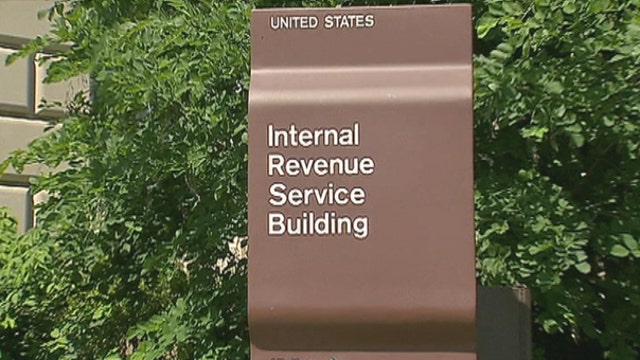Obama Takes Aim at 'Unpatriotic' Corporate Inversions
President Barack Obama is taking direct aim at the rising number of U.S. companies using international mergers to relocate their headquarters overseas in an effort to avoid paying U.S. corporate taxes.
In prepared remarks in a speech scheduled for today at a technical college in Los Angeles, the president urged Congress to pass tax reforms that would eliminate loopholes that allow U.S. companies to shield large portions of their profits overseas.
Obama’s public remarks significantly raise the profile of an effort that gained momentum last week with a letter from Treasury Secretary Jacob Lew sent to Congressional leaders in which Lew said such international mergers, called “inversions,” “hollow out the U.S. corporate income tax base.”
The president was expected to make a broad call for “economic patriotism,” suggesting that companies that pursue inversions are essentially renouncing their U.S. citizenship in an effort to reduce their corporate tax burdens.
Administration officials said ahead of the president’s speech that inversions hurt middle-class Americans who have to pick up the slack when corporations use sophisticated loopholes to shirk their tax responsibilities.
Inversions -- and the U.S. corporate tax code -- have come under a higher level of scrutiny since giant U.S. drug maker Pfizer (NYSE:PFE) announced earlier this year that it planned to merge with London-based AstraZeneca, a move that would have saved it billions in U.S. taxes.
The deal fell apart but the issues it raised haven’t gone away.
Relocating their legal addresses outside the U.S. for tax purposes is hardly a new phenomenon for companies, but Pfizer is by far the largest and most high-profile company to ever attempt the move.
Through an inversion Pfizer was seeking to reduce its U.S. corporate tax rate of 35% to the much lower 21% in England.
The companies that seek inversions say the comparatively-high U.S. corporate tax rate leaves them at a competitive disadvantage to their overseas competitors. Paying a lower tax rate, they say, helps the company reinvest in itself and ultimately benefits shareholders.
Tax experts estimate there have been about 50 inversions by U.S. companies over the past few decades, with the pace picking up considerably in recent years.
Earlier this year, the Obama administration tucked a measure into a budget bill that would have made the relocation process more difficult for U.S. companies, but the measure never got off the ground in Congress.
Obama is now urging Congress to pass the legislation retroactive to May, arguing that will stop companies from rushing into deals to avoid the law. Republicans in Congress, however, have supported broad tax reform that would eliminate loopholes and lower corporate tax rates in an effort to reduce the incentive for companies to relocate in countries with lower tax rates than the U.S.
Under current law, shareholders of a U.S. company that merged with an offshore entity would have to own less than 80% of the combined entity to take advantage of a lower foreign tax rate. Obama's budget proposes slashing that cutoff to 50%.
Administration officials estimate the deals, if allowed to continue, will cost the U.S. Treasury $17 billion in lost revenue over the next decade.




















